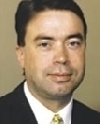VZCZCXRO6643
OO RUEHRG
DE RUEHBR #2293/01 3051751
ZNY SSSSS ZZH
O 011751Z NOV 06
FM AMEMBASSY BRASILIA
TO RUEHC/SECSTATE WASHDC IMMEDIATE 7162
INFO RUEHAC/AMEMBASSY ASUNCION PRIORITY 5761
RUEHBO/AMEMBASSY BOGOTA PRIORITY 3987
RUEHBU/AMEMBASSY BUENOS AIRES PRIORITY 4384
RUEHCV/AMEMBASSY CARACAS PRIORITY 3488
RUEHGT/AMEMBASSY GUATEMALA PRIORITY 0311
RUEHLP/AMEMBASSY LA PAZ PRIORITY 4961
RUEHPE/AMEMBASSY LIMA PRIORITY 3228
RUEHMN/AMEMBASSY MONTEVIDEO PRIORITY 6570
RUEHOT/AMEMBASSY OTTAWA PRIORITY 1003
RUEHPU/AMEMBASSY PORT AU PRINCE PRIORITY 0158
RUEHQT/AMEMBASSY QUITO PRIORITY 2020
RUEHSG/AMEMBASSY SANTIAGO PRIORITY 5900
RUEHRG/AMCONSUL RECIFE PRIORITY 5757
RUEHRI/AMCONSUL RIO DE JANEIRO PRIORITY 3227
RUEHSO/AMCONSUL SAO PAULO PRIORITY 8490
RUEKJCS/SECDEF WASHDC PRIORITY
RHEHNSC/NSC WASHDC PRIORITY
RUMIAAA/USCINCSO MIAMI FL PRIORITY
RUEATRS/DEPT OF TREASURY WASHINGTON DC PRIORITY
RUEAIIA/CIA WASHDC PRIORITY
S E C R E T SECTION 01 OF 02 BRASILIA 002293
SIPDIS
NOFORN
SIPDIS
E.O. 12958: DECL: 05/25/2016
TAGS: PREL BR
SUBJECT: BRAZIL: MORE OBSERVATIONS ON FOREIGN POLICY IN
LULA'S SECOND TERM
REF: BRASILIA 2245
Classified By: POLITICAL COUNSELOR DENNIS HEARNE. REASONS: 1.4 (B)(D).
¶1. (C) Introduction. Reftel discussed Mission,s views that,
despite interesting media reports that President Lula da
Silva,s foreign policy in a second term could shift toward
closer ties with the U.S., we could not see yet concrete
evidence of such a trend. We remain circumspect on this
question. At the same time, candid and encouraging
conversations with top GOB officials on the day after Lula,s
strong victory at the polls left Ambassador and emboffs
wondering about the possibility that some change may be
brewing. We report what we heard below, with the caveat that
we remain in a cautious "wait and see mode" for the time
being. End introduction.
¶2. (C) Ambassador and PolCouns visited the Planalto Palace on
30 October, and found a Presidency in an open mood of
jubilant celebration. A steady column of VIPs streamed
through for audiences with re-elected President Lula. A
relieved and buoyant Gilberto Carvalho, Chief of Lula,s
Personal Staff, received Ambassador and poloff for a courtesy
call, which turned into a compelling conversation about the
direction of policy in Lula,s second term. Carvalho, who is
perhaps Lula,s closest long-time advisor, made the following
comments:
--On foreign policy, Carvalho said that Lula,s first term
had seen a broad opening of Brazil to new alliances and
diplomatic arrangements worldwide. Now, with this base
established, the second Lula government will re-focus
priority on "quality relationships with traditional
partners." Specifically, for Brazil to grow with new
investment, the GOB will need to engage more intensively with
the United States, Carvalho stressed.
--Ambassador welcomed this observation, but said he remained
concerned when he heard certain Brazilian officials speak of
the need to "counterbalance" against the U.S., and opined
that two democracies should be able to debate and work
together directly, without such contrivances. Carvalho was
emphatic in agreeing, said there will be no further
discussion of counterbalances, and asked for the
Ambassador,s understanding if rhetoric during the election
campaign had occasionally seemed critical of the U.S. He
again assured Ambassador that the second Lula government
wants investment and growth, and sees relations with the U.S.
as central to this.
--At the conclusion of the meeting, Carvalho provided his
private telephone numbers to Ambassador and PolCouns and
encouraged them to contact him directly at any time if there
was problematic development in relations between the two
governments, of if they wished to present an issue directly
to President Lula. Carvalho said he would welcome this
direct channel with the Ambassador.
¶3. (S/NF) In a separate meeting at Planalto with General
Jorge Armando Felix, Lula,s Minister for Institutional
Security, Ambassador, PolCouns and Regional Affairs Chief
raised the subject of intensified U.S.-Brazil exchanges and
cooperation in intelligence and security. Ambassador noted
that President Lula, in a brief aside at the UNGA in New
York, had encouraged continued engagement with General Felix,
presumably on such issues. General Felix then announced that
he had, subsequent to an earlier meeting with Ambassador,
commissioned a formal paper outlining specific areas for
consultation and collaboration at the policy level with the
USG in the intelligence field. Ambassador and Felix agreed
BRASILIA 00002293 002 OF 002
that the GOB could also specify in the paper specific
equipment or training they might require, and decided to plan
together for a high-level bilateral intelligence meeting
early in 2007 in Brasilia.
¶4. (C) In an earlier conversation on the same day,
Development and Industry Minister Luiz Furlan told Ambassador
that Lula was pressing him to stay on in a second government,
and Furlan appeared to be considering this option. Furlan, a
moderate with a business background who has long pressed
within Lula,s cabinet for closer cooperation with the United
States, seemed to be of the view that Lula,s second term
priorities would be shifting in the direction of closer
engagement with the U.S. and other developed nations.
¶5. (C) Comment. Our senior interlocutors were in high
spirits yesterday, with a kind word for the world, including
the U.S. But without major changes in the foreign
ministry's senior staffing and orientation, we wonder about
the viability of a tilt toward the U.S. and developing world,
and away from the south-south priorities of the first Lula
term. Nonetheless, it is intriguing that we have received
such a steady stream of strong signals from senior Lula
advisors on the day after his victory. Watch this space.
Sobel
